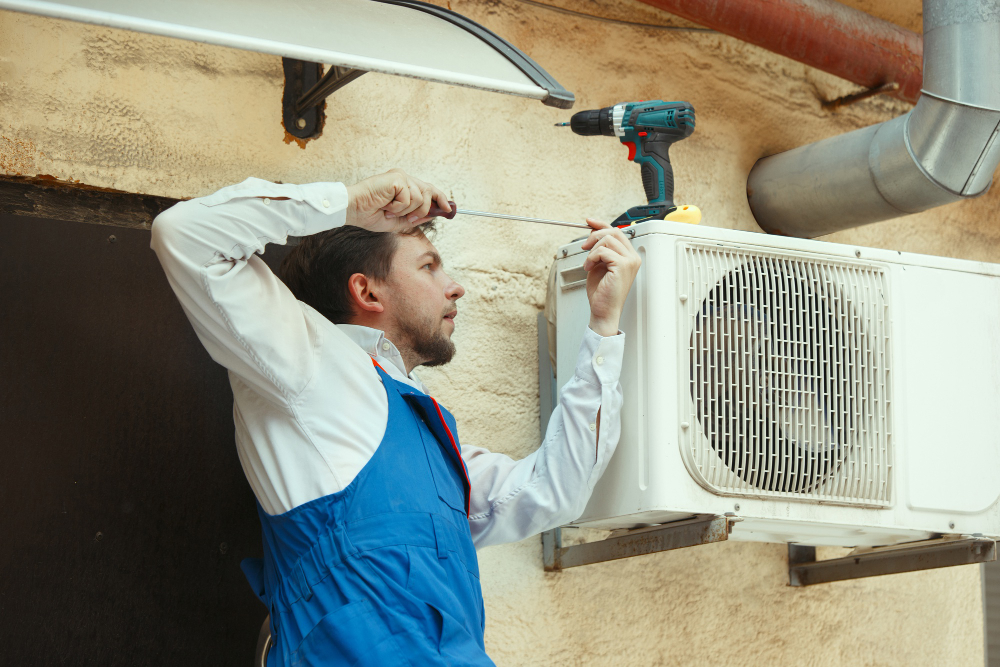- 0.1 Introduction
- 4.1 MERV Ratings
- 4.2 Filter Sizes
Introduction
Regularly changing HVAC filters is crucial to maintaining a clean and efficient HVAC system. These filters play a vital role in trapping airborne particles and contaminants, ensuring better indoor air quality and protecting the system from damage. This article will explore the importance of this simple maintenance task and its positive impact on indoor air quality, energy efficiency, and HVAC system longevity.
Why Regularly Changing Your HVAC Filters is Important
There are several benefits to regularly changing your HVAC filters. These include:
Improved Air Quality:
HVAC filters effectively capture dust, pollen, pet dander, mold spores, and other airborne particles. By changing the filters regularly, you can maintain better indoor air quality, providing a healthier living environment for occupants.
Increased Energy Efficiency:
A clogged or dirty filter can restrict airflow, causing the HVAC system to work harder to maintain the desired temperature. Replacing the filters as recommended can ensure optimal airflow and improve energy efficiency, potentially reducing utility bills.
Extended Lifespan of Your HVAC System:
Clean filters prevent dust and debris from accumulating in the system, reducing wear and tear on the components. Regular filter changes can extend the lifespan of your HVAC system, saving you money on costly repairs and replacements.
How Often Should You Change Your HVAC Filters?
The frequency at which you should change your HVAC filters depends on several factors, including the type of filter you use, the size of your home or business, and the presence of pets or other sources of particles. As a general rule, changing your filter every 1-3 months is recommended. However, consulting with an air filter supplier such as Simply Filters is important to determine the best replacement schedule for your specific needs.
Factors that Affect Filter Lifespan
Indoor Air Quality: Homes or businesses in areas with high levels of pollutants, such as dust or pet dander, may require more frequent filter changes.
Occupancy: The number of occupants and pets in the space can impact how quickly the filter becomes dirty.
Allergies or Respiratory Conditions: Individuals with allergies or respiratory conditions may benefit from more frequent filter changes to maintain cleaner air.
Construction or Renovation: Construction activities or renovations can generate additional dust and debris, requiring more frequent filter changes during these periods.
Recommended Replacement Schedule
As a general guideline, HVAC filters should be changed every 30 to 90 days. However, it’s essential to check the manufacturer’s recommendations for your specific filter and HVAC system. Some filters, such as high-capacity pleated filters or HEPA filters, may have longer lifespans and can last up to six months or even a year.
Choosing the Right HVAC Filter for Your System
Selecting the right HVAC filter ensures optimal performance and air quality. Consider the following factors:
Several types of HVAC filters are available on the market, including fiberglass, pleated, and electrostatic filters. It’s important to consult with an air filter supplier such as Simply Filters to determine which type of filter is best for your system.
MERV Ratings
The Minimum Efficiency Reporting Value (MERV) rating indicates the filtration efficiency of the filter. Choose a filter with a MERV rating appropriate for your indoor air quality needs, typically ranging from 7 to 13 for residential applications.
Filter Sizes
Ensure that the HVAC filter size matches the dimensions specified by the manufacturer or the existing filter to guarantee a proper fit and optimal filtration for example 16x25x1 air filters, 20x20x1 air filters or more.
Conclusion
Regularly changing HVAC filters is a simple yet crucial maintenance task that offers numerous benefits. By improving indoor air quality, increasing energy efficiency, and extending the lifespan of your HVAC system, filter changes contribute to a healthier and more cost-effective living or working environment. Factors like indoor air quality, occupancy, and the presence of allergies or respiratory conditions influence the recommended replacement schedule.
